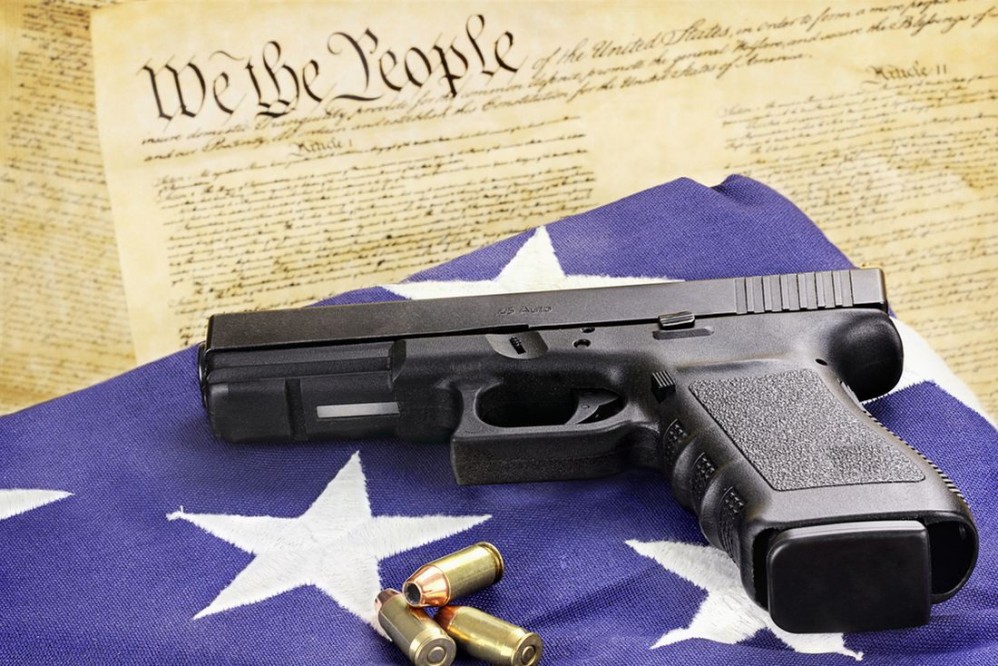It's no secret that the gun control debate is filled with omissions and non-sequiturs. Both sides do it, and it's not especially charming in either case. Indeed, depending on the particular individuals involved, the whole argument can often be fruitfully summarized as one side yelling Australia! while the other is yelling Chicago! Politically, the issue seems likely to end in a stalemate, given that we find ourselves in an election year. Nevertheless, the debate elsewhere will continue to dominate our social media feeds until a more significant crisis unseats it.
Given these circumstances, today our purpose is to take aim at one of the most important omissions in the gun control debate, namely how privilege shapes its priorities.
To this end, we recommend an intriguing new article at the Mises Institute written by Tate Fegley. As we've discussed previously, gun control advocates often use very broad measures of gun-related violence such as total gun deaths (which includes suicides). However, the article points out that the proposed gun control solutions are really geared towards only a very small subset of the overall gun violence--the mass shooting attacks that have regularly captured headlines over the past year. Fegley offers some stark statistics to make this point:
According to the Bureau of Justice Statistics,less than one percent of all homicides each year in the U.S. are from shootings where 3 or more are killed. And between 1993 and 2011, 70 to 80 percent of firearm homicides (and 90 percent of nonfatal victimizations) were committed with a handgun, not a scary-looking assault rifle.Most gun violence actually occurs in far less sensational ways. And given the general link between poverty and crime, it's also fair to say that much of this less-publicized violence is likely occurring in poorer communities.
Taking these facts together, the relevant question is why the gun control debate prioritizes mass shootings over the more substantial causes of violence. Surely part of the answer is emotional and part is probably a political desire not to let a crisis go to waste, as they say. However, Fegley suggests, convincingly, that privilege offers part of the explanation as well:
Few of the politicians, celebrities, or media personalities advocating further gun restrictions live in a dangerous neighborhood. Many of them can afford to live in a gated community and hire personal private security, or have such security provided to them at taxpayers' expense. They are able to drive, not walk, through dangerous areas, if not avoid them entirely.Whatever your preferred solution for the gun control argument is, Fegley's insight is a valuable one. Many of us are fortunate enough to live in circumstances where we are able to basically take our personal security for granted. I am certainly one of them; I don't own a gun for personal protection, and I wouldn't know the first thing about using it if I did. That said, we should acknowledge that this is a privilege that some Americans do not enjoy, and the priorities in the gun control debate ultimately reflect this privilege. They are not designed to address gun violence writ large; they are designed to address the (exceedingly rare) circumstances where people who normally feel secure could come under attack.
As such, they have little to lose in terms of safety if further restrictions on private gun ownership are implemented. The types of gun violence they are most concerned about are rare events occurring in places where middle and upper class people can imagine themselves: places like college campuses, night clubs, and movie theaters — not the inner-city. Despite railing against the racism of police that people in poor communities face, they tend to give no thought to how these individuals, who do not enjoy the same level or quality of police protection that they do, will protect themselves.
Recognizing this privilege doesn't automatically mean those proposals are a bad idea. But it does suggest that we need to consider the possible unintended consequences these laws could have on people that do not share the privilege of feeling secure in their day-to-day lives.

No comments:
Post a Comment